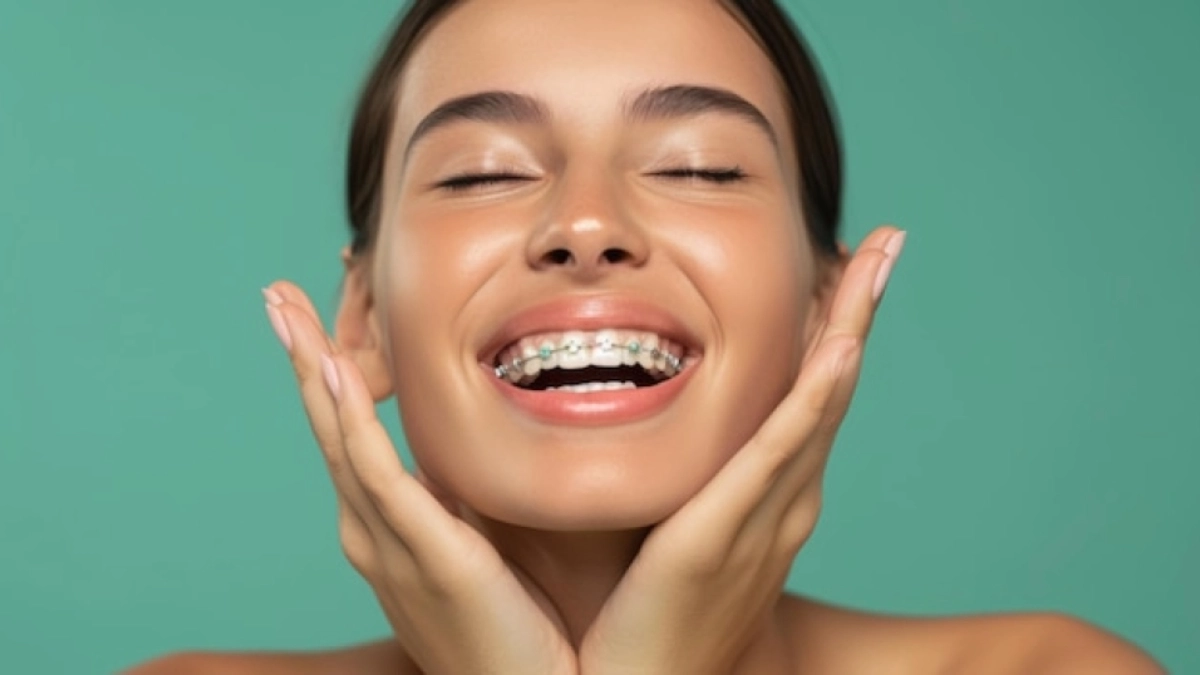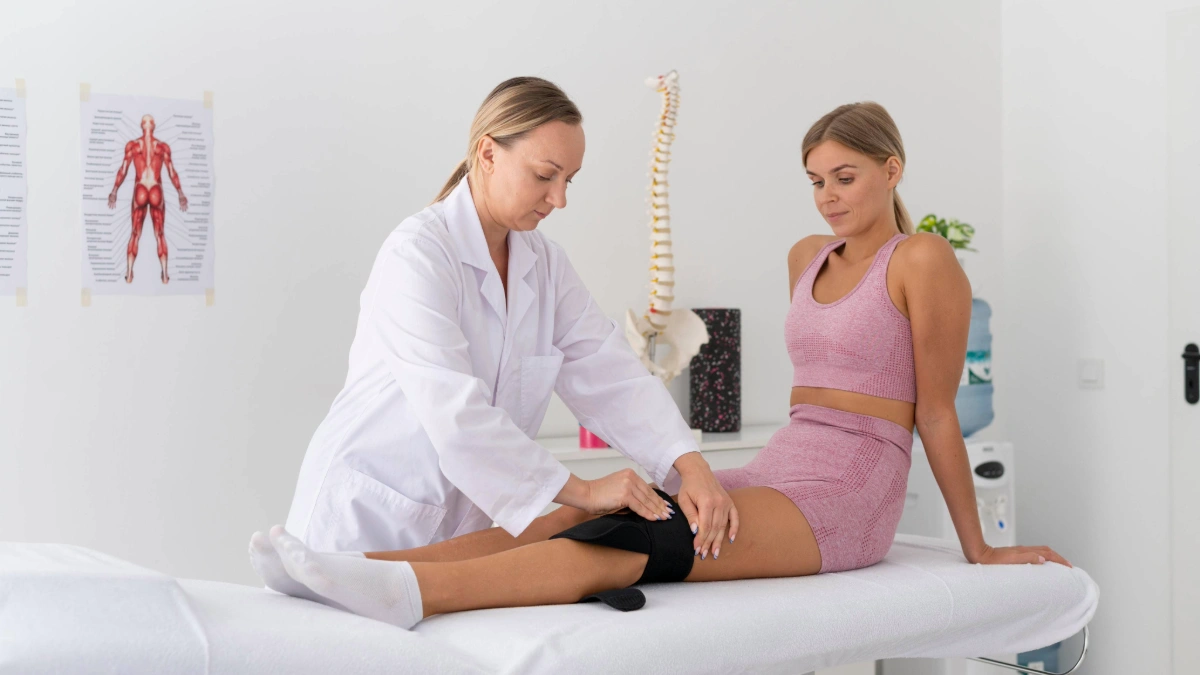Orthodontics in Turkey offers advanced and cost-effective solutions to achieve a perfect smile. Beyond aesthetics, orthodontic treatments boost self-confidence, ensure thorough chewing, and help maintain correct articulation. Here in Turkey, we help individuals of all ages achieve the dental alignment they desire, providing various treatment options tailored to specific needs.
What is Orthodontics?
Orthodontics is a branch of dentistry that focuses on diagnosing and treating malocclusions or “bad bites”. Treatments often include braces, clear aligners, and retainers, to correct the alignment of teeth.
Why Orthodontics in Turkey?
Turkey has become a leading destination for orthodontic treatments due to several factors, including affordability, high-quality care, and the expertise of internationally trained orthodontists. Our commitment to excellence means our clinics are equipped with state-of-the-art technology and cater to both local and international patients, providing world-class orthodontic care.
When Should I Take My Child to the Orthodontist?
The American Association of Orthodontists recommends the first visit by age 7. Early visits help identify potential issues and sometimes minimize the need for extensive treatments later.
Who Benefits from Orthodontics in Turkey?
Almost everyone can benefit from orthodontics, but those with chewing difficulties, speech impediments, or a desire for aesthetic improvement are prime candidates.
Types of Dental Orthodontic Appliances in Turkey
Orthodontic treatments are designed to move teeth into proper alignment using various appliances. The most commonly used appliances include braces, clear aligners, retainers, and palate expanders. Here’s a closer look at each:
Braces
Braces are the cornerstone of orthodontic treatment. Composed of metal brackets, bands, and wires, braces gradually shift your teeth into their desired positions over time. Different types of braces are available to suit various needs:
- Traditional Metal Braces: The most robust and common form of braces, often preferred for severe misalignments.
- Ceramic Braces: These are less noticeable and blend in with the teeth due to their tooth-coloured brackets.
- Lingual Braces: Positioned on the inner surface of the teeth, making them invisible from the outside.
- Self-Ligating Braces: These braces do not require elastic ties, making them easier to clean and faster in treatment.
Clear Aligners
Invisalign: Invisalign uses custom-made clear aligners that are nearly invisible. These aligners are removable, allowing for greater convenience during eating and oral hygiene routines. They are suitable for mild to moderate alignment issues and require strict adherence to wearing them for the recommended 20-22 hours a day for optimal results.
How Braces Work
Braces work by applying continuous pressure to the teeth, gradually shifting them into the desired positions. Here’s the process involved:
Retention: After achieving the desired alignment, retainers are used to maintain the new position of the teeth.ers are typically used in children to widen the upper jaw. This device is beneficial in creating extra space, thereby eliminating the need for tooth extractions and resolving crowding issues effectively.
Consultation and Evaluation: The orthodontist assesses the patient’s oral health, taking X-rays and impressions to create a personalized treatment plan.
Treatment Planning: Based on the evaluation, the orthodontist recommends suitable treatment options and discusses the duration and expected outcomes.
Orthodontic Appointments: Regular follow-up appointments are scheduled to adjust the braces and ensure the teeth are moving correctly.
Maintaining Oral Hygiene: Patients are advised on proper cleaning techniques to maintain oral hygiene throughout the treatment period.
Indications and Contraindications for Wearing Braces
While braces can address various dental issues like crooked teeth, large gaps, and jaw alignment problems, they are not suitable for everyone.
Indications
- Crooked Teeth: Caused by defective tooth eruption.
- Shifting of Adjacent Teeth: Resulting from premature loss of teeth or other factors.
- Jaw Pathologies: Including innate pathologies of the upper or lower jaw.
Contraindications
- Cancer
- Epilepsy
- Psychic Disorders
- Bruxism
- Allergies to Metal
- Severe Jaw-Bone Tissue Pathologies
- Blood Diseases
- Tuberculosis
- Endocrine and Immune System Disorders
Patients must undergo preliminary treatment for any existing dental disorders and receive professional oral cavity cleaning before braces are installed.
Age and Duration of Orthodontics Treatment
Ideal Age for Braces
Human teeth remain mobile throughout life, allowing for orthodontic treatment at any age. However, the best results are typically achieved when treatment begins between the ages of 12-14.
Treatment Duration
Malocclusion can be corrected within 1-2 years, although this timeframe can vary based on the patient’s age and specific dental pathology. The exact duration will be determined during the first consultation with the orthodontist.
Benefits of Orthodontics in Turkey
Orthodontic treatment offers a range of benefits that extend beyond a beautiful smile:
- Improved Oral Hygiene: Properly aligned teeth are easier to clean, reducing the risk of cavities and gum disease.
- Enhanced Chewing and Speech Function: Correct alignment can eliminate issues related to chewing and speaking.
- Pain Relief: Orthodontics can alleviate pain associated with Temporomandibular Joint Disorders (TMJ).
- Long-Term Dental Health: Reduces the risk of excessive wear and tear on your teeth.
Disadvantages and Considerations
While the benefits are numerous, orthodontic treatment does have some short-term disadvantages:
- Commitment Required: Orthodontic treatments require adherence to guidelines and patience.
- Potential Discomfort: Initial discomfort is common but temporary.
- Financial Commitment: Although less expensive in Turkey, orthodontic treatments can still represent a significant investment.
Common Orthodontic Problems
Orthodontic treatment can address various dental issues, including:
- Overbite/Underbite: Misalignment between the upper and lower teeth.
- Crowded Teeth: Lack of space causing overlapping or crooked teeth.
- Spacing Issues: Gaps between teeth, known as diastema.
- Impacted Teeth: Teeth that are partially or fully trapped within the jawbone.
Cost of Dental Orthodontics Treatment in Turkey
One of the main reasons patients choose to undergo orthodontic treatment in Turkey is the significantly lower cost compared to Western Europe and North America.
In the UK, the average cost of braces can range from £1,500 to £5,000, while in the US, the typical cost is between 3,000to9,000. In contrast, the same treatments in Turkey can be obtained for a fraction of the price, often 25-50% less.
This cost-effectiveness, combined with Turkey’s reputation for high-quality dental care, makes it an attractive destination for those seeking affordable orthodontic solutions.
Treatment Duration and Aftercare
The duration of dental orthodontics treatment in Turkey can vary depending on the complexity of the case, the patient’s age, and their adherence to the treatment plan. On average, fixed braces treatments take around 2 years, while clear aligner treatments may be completed in 6 months to 2 years.
After the active treatment phase, patients will need to wear a retainer to maintain the achieved results. Retainer wear is typically required for at least 1 year, with many patients continuing to wear them long-term to prevent teeth from shifting back to their original positions.
Choosing the Right Orthodontic Treatment
Selecting the appropriate orthodontic treatment involves considering several factors, including:
- Severity of the Dental Issue: Complex issues may require traditional braces.
- Aesthetic Concerns: Clear or lingual braces may be preferred for their discreet appearance.
- Budget: Metal braces are generally the most cost-effective option.
- Convenience and Lifestyle: Invisalign offers the convenience of removability.
Why Choose Avicenna International Hospital for Dental Orthodontics in Turkey?
At Avicenna International Hospital, we take pride in our team of highly skilled and experienced orthodontists who are dedicated to providing exceptional care. Our state-of-the-art facilities, combined with the latest orthodontic technologies, allow us to deliver personalized treatment plans that cater to each patient’s unique needs.
Patients can expect:
- Comprehensive consultations to develop the optimal treatment approach
- Transparent pricing and flexible payment options
- Meticulous attention to detail throughout the treatment process
- Exceptional post-treatment care and long-term follow-up
If you’re considering dental orthodontics treatment in Turkey or Hollywood smile, we invite you to contact us at Avicenna International Hospital to schedule a consultation and learn more about how we can help you achieve your dream smile.
Yes, Turkey is an excellent destination for braces and other orthodontic treatments. Turkish dental clinics use the latest techniques and technologies, and they are staffed by highly skilled orthodontists.
While many countries offer quality orthodontic care, Turkey has emerged as a premier destination for dental tourism. The combination of advanced treatments, experienced professionals, and affordable prices makes Turkey one of the best countries for orthodontics. Patients from the UK, Europe, and beyond are increasingly choosing Turkey for their orthodontic needs.
Clear aligners, such as Invisalign, are a popular orthodontic option in Turkey. The cost of clear aligners in Turkey typically ranges from 3,000 to 4,000, which is significantly lower than the price tag in many Western countries. This makes Turkey an attractive choice for those seeking a more discreet and comfortable orthodontic treatment.







